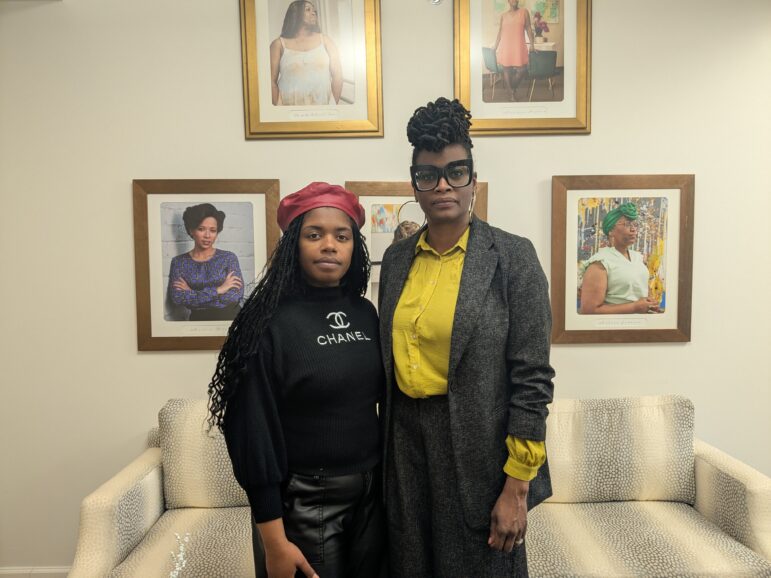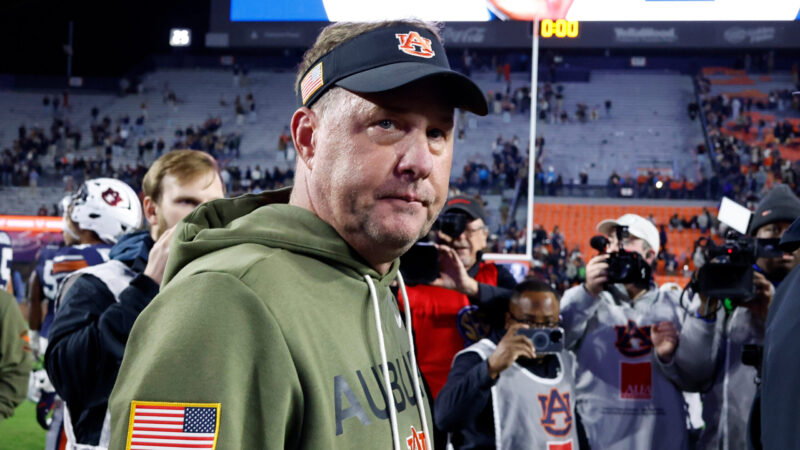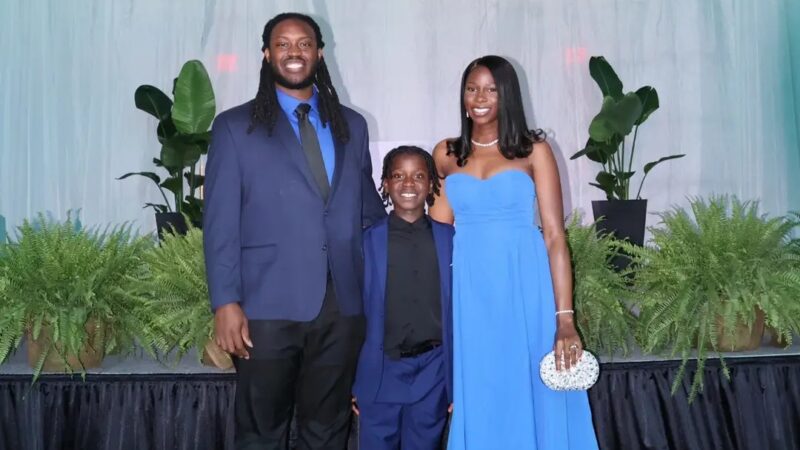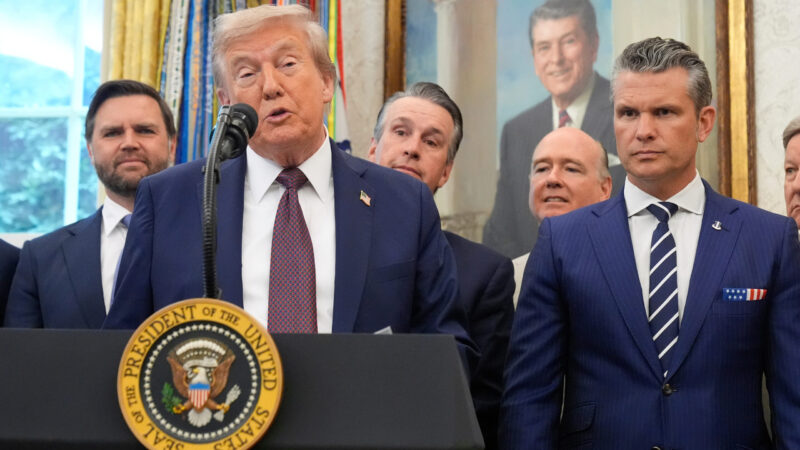Paid parental leave likely coming for state employees in Alabama and Mississippi
Josh and Diana Bernstein sit at their home with their three children on Jan. 19, 2025. Both have been advocating for paid parental leave for state employees in Mississippi.
Alabama and Mississippi are two of just a dozen states that do not offer paid parental leave to state employees. That’s likely about to change.
The legislatures in both states have passed bills providing that benefit and are on the path to become law. This follows a trend of states doing this in recent years, including Louisiana, which began offering the paid leave in 2024.
In Mississippi, the move has support from advocates and politicians across the political aisle, from workplace advocates and professors arguing its need to retain talent in the state to the attorney general who played the lead role ending Roe v. Wade.
“This is one thing I think that the pro-life movement and the people who are described as, you know, ‘liberal professors’ can come together on,” said Josh Bernstein, associate professor at the United Faculty Senators Association of Mississippi.
Mississippi state employees could get six weeks of paid leave
Most Mississippi state legislators support parental leave. It’s the details that are still being worked out.
The House passed a bill in January without a single no vote. That bill provided full paid leave for parents of newborns or those who adopted a child. The primary caregiver – not required to be the mother – would get eight weeks and two for a secondary caregiver.
The Senate version knocked it down to six weeks and cut out time off for a secondary caregiver. After some House amendments to add back in coverage for university professors, the bill was sent back to the Senate.
Alabama’s Senate also voted in favor of a bill with eight weeks of paid leave – though it requires that the leave be taken by a woman. Men can take two weeks. The benefit would also provide time off for miscarriages and stillbirths. It’s now in the hands of the House.
Anti-abortion attorney general is pro-parental leave
Alabama Gov. Kay Ivey is one of the most influential voices pushing for parental leave in her state. In Mississippi, that champion is Attorney General Lynn Fitch. She played an outsized role in creating the groundswell momentum around the policy.
That’s because Fitch helped lead the case that ultimately ended Roe v. Wade.
Shortly after the Supreme Court removed federally guaranteed abortion rights with the Dobbs v. Jackson Women’s Health Organization case, Fitch wrote that “now, our work to empower women and promote life truly begins.”
For Fitch and anti-abortion advocates like her, that’s meant shifting much of their energy away from the abortion fight and toward helping families by pushing policies like parental leave. She wrote before this year’s legislative session that it was time to offer the benefit to the state’s employees.
“Before, families had choice”

Other advocates outside the anti-abortion movement believe the Dobbs decision underscores why paid leave is needed.
“Before, families had choice,” Robin Y. Jackson, director of policy and advocacy for the Mississippi Black Women’s Roundtable, said. “Now that choice is off the table, it’s like how do we come together?”
The Mississippi Black Women’s Roundtable put parental leave as one of the organization’s top priorities for this legislative session.
The price tag of the program has been a concern of lawmakers. In Alabama, it would cost on average $8,600 per employee that uses the full eight weeks, according to an analysis by legislative staff. The full cost isn’t known.
But Jackson argues that keeping talented employees in Mississippi, rather than leaving for another state that does offer the benefits, is priceless.
“This may be something that may be a cost on the front end,” Jackson said. “But being able to retain your employees, being able to give morale and all of those things – you can’t put a dollar amount on that.”
Parental leave to keep talent from avoiding Mississippi
Advocates for the policy said without it, Mississippi workers could choose to leave the state – and recruits avoid it altogether. Diana Bernstein, an assistant professor at the University of Southern Mississippi, said she mentored six early career scientists looking for jobs – all of whom were not interested in states like Mississippi that lacked parental leave.
“They are not looking for a job anywhere in Mississippi,” Bernstein said.
Shequite Johnson had two children without paid parental leave. She finally received that benefit after delivering her third child and said it made a tremendous difference, especially since she suffered health issues after the birth. But her employer only covered four weeks and she took two unpaid weeks off to address her condition.
Johnson now works at Mississippi Valley State University in the Mississippi Delta and said she hopes parental leave passes in the state.
“It’s a major deal,” Johnson said. “It’s something we really need. Especially in the Mississippi Delta.”
Auburn fires coach Hugh Freeze following 12th loss in his last 15 SEC games
The 56-year-old Freeze failed to fix Auburn’s offensive issues in three years on the Plains, scoring 24 or fewer points in 17 of his 22 league games. He also ended up on the wrong end of too many close matchups, including twice this season thanks partly to questionable calls.
In a ‘disheartening’ era, the nation’s former top mining regulator speaks out
Joe Pizarchik, who led the federal Office of Surface Mining Reclamation and Enforcement from 2009 to 2017, says Alabama’s move in the wake of a fatal 2024 home explosion increases risks to residents living atop “gassy” coal mines.
‘It’s like feeling the arms of your creator just wrapped around you’: a visit to a special healing Shabbat
Members of Temple Emanu-El in Birmingham gathered recently for their traditional Friday Shabbat service. But this particular service was different, as could be seen by all the people dressed in their finest pink.
Space Command is coming to Huntsville. What might that mean for first-time homebuyers
While Huntsville has been a more affordable market than other growing cities, what’s it been like for those looking for their first home?
Colorado says relocation of Space Command to Alabama is ‘punishment’ for mail-in voting
The litigation announced by Colorado Attorney General Phil Weiser asks a federal judge to block the move as unconstitutional.
Breaking down Alabama’s CHOOSE Act
It’s been a year since Alabama legislators passed the CHOOSE Act allowing families to apply for state funds to use towards homeschool expenses and tuition for participating private schools. The Alabama Daily News’ education reporter Trisha Powell Crain has been diving into how the funds are being used. WBHM’s Andrew Gelderman sat down with her to talk about what we’re seeing so far.









